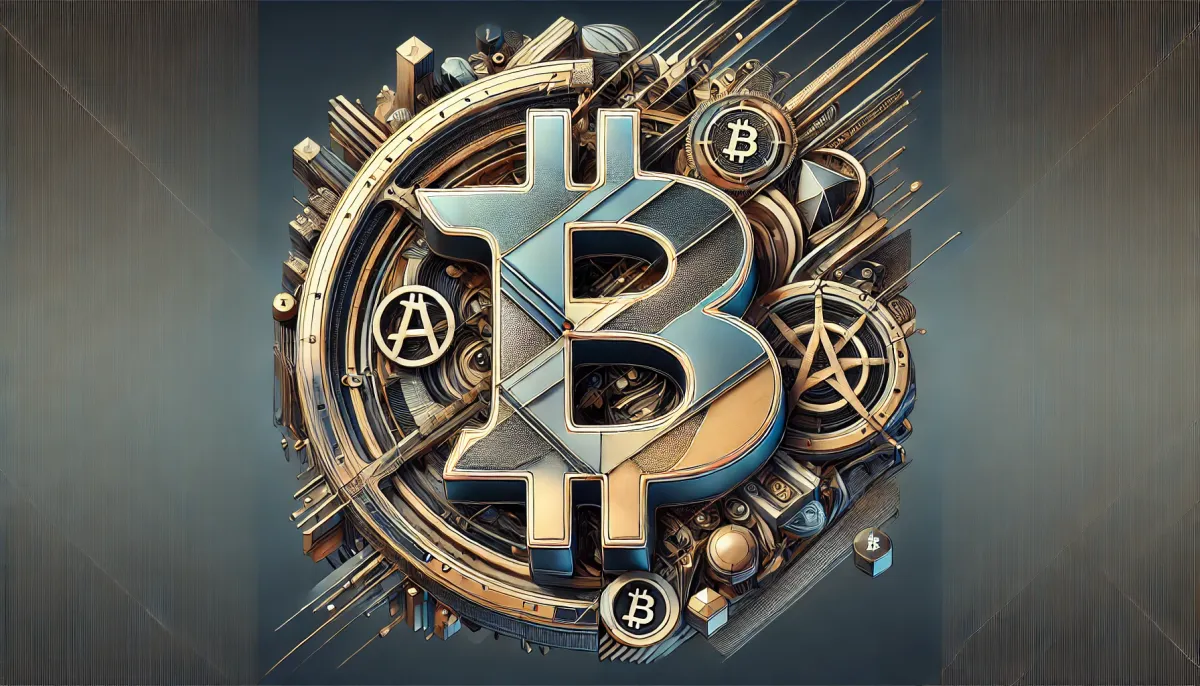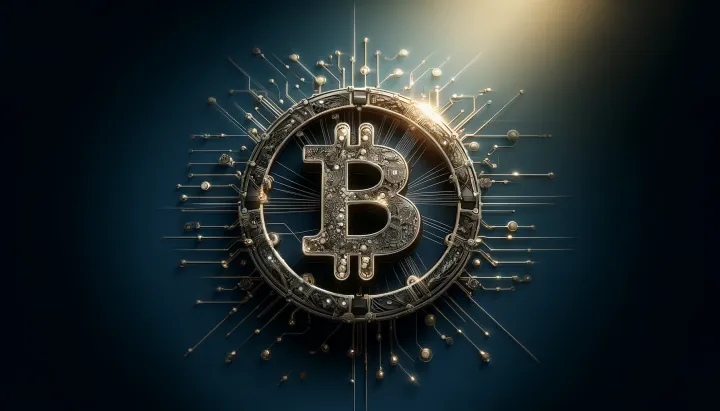Bitcoin: Decentralization, Technology, and Governance
On January 03, 2025, the Blockware podcast featured Ben de Waal discussing Bitcoin’s energy-bound proof of work, decentralized security, and its broader socio-political implications.

- My 'briefing notes' summarize the content of podcast episodes; they do not reflect my own views.
- They contain (1) a summary of podcast content, (2) potential information gaps, and (3) some speculative views on wider implications.
- Pay attention to broadcast dates (I often summarize older episodes)
- Some episodes I summarize may be sponsored: don't trust, verify, if the information you are looking for is to be used for decision-making.
Summary
On January 03, 2025, the Blockware podcast featured Ben de Waal discussing Bitcoin’s energy-bound proof of work, decentralized security, and its broader socio-political implications. The broadcast illuminated technical challenges such as scalability and self-custody risks while exploring potential regulatory impacts. These insights offer a concise roadmap for understanding Bitcoin’s evolving role in a post-government financial landscape.
Take-Home Messages
- Energy and Security: Bitcoin’s proof of work secures the network by leveraging energy, ensuring robust resistance to manipulation.
- Stability Mechanism: The difficulty adjustment maintains predictable block times, crucial for network consistency.
- Decentralization: Bitcoin’s design inherently resists centralization, promoting financial autonomy.
- Self-Custody: Effective key management is vital to protect assets from irreversible loss.
- Regulatory Balance: Sound policy frameworks are essential to safeguard innovation while ensuring consumer protection.
Overview
Ben De Waal recounts his early exposure to computing, detailing how foundational experiences with technology led him to explore Bitcoin’s potential. He highlights the significance of computational limits and energy constraints that underpin Bitcoin’s design. This narrative sets the stage for a deeper technical and ideological exploration.
De Waal explains Bitcoin’s core mechanisms, focusing on proof of work and the difficulty adjustment that secures a 10-minute block interval. He contrasts Bitcoin’s approach with alternative consensus models, emphasizing that its security derives from tangible energy expenditure. This explanation demystifies how Bitcoin preserves network integrity amid increasing computational power.
The discussion then shifts to Bitcoin’s ideological dimensions, with de Waal linking its decentralized structure to principles of libertarian socialism and anarchism. He suggests that Bitcoin’s design challenges traditional state-centric models by promoting rule without centralized authority. His analysis provides insight into how Bitcoin could foster a more equitable financial landscape.
Practical concerns are also addressed, including the risks of self-custody and potential regulatory intervention. De Waal stresses the importance of robust key management practices to prevent asset loss. The conversation concludes by underscoring the need for enhanced public education and balanced policy frameworks to support Bitcoin’s future.
Stakeholder Perspectives
- Bitcoin Users: Emphasize secure asset management and resistance to censorship.
- Developers and Technologists: Focus on enhancing scalability and refining consensus protocols.
- Regulators and Policymakers: Seek a balance between fostering innovation and protecting consumers.
- Institutional Investors: Demand robust governance and clear risk management frameworks.
- Political Advocates: Champion Bitcoin’s potential to disrupt centralized power structures and promote financial freedom.
Implications and Future Outlook
The technical resilience of Bitcoin, underscored by its proof of work and difficulty adjustment, suggests an infrastructure capable of withstanding increasing computational demands. As energy-efficient mining solutions emerge, Bitcoin may achieve a more sustainable operational model. This evolution is critical for stakeholders relying on consistent network performance and security.
The focus on self-custody and key management highlights the essential role of user responsibility in asset protection. Improved educational initiatives and user-friendly storage solutions are imperative to mitigate the risk of irreversible losses. These measures will be pivotal in broadening adoption among both individual and institutional investors.
Potential regulatory intervention remains a significant external challenge that could reshape Bitcoin’s decentralized governance. Developing balanced policy frameworks will be crucial to maintain network autonomy while ensuring consumer protection. Such regulatory clarity could foster a stable environment for growth, benefiting society through enhanced financial inclusion.
Information Gaps
- What strategies can reduce Bitcoin's energy consumption while preserving its security properties? This question is critical because it addresses environmental sustainability and operational efficiency, both with significant societal and economic implications. Innovations in energy efficiency could redefine Bitcoin’s operational model.
- What improvements can be made to the difficulty adjustment algorithm to enhance network scalability? This inquiry focuses on maintaining network stability amidst growing computational power and user demand. Its resolution could optimize transaction throughput and support long-term network growth.
- What best practices can be developed to mitigate the risks associated with self-custody of Bitcoin? Secure key management is essential to prevent irreversible financial losses. Addressing this gap is vital for protecting individual assets and building institutional trust.
- What policy frameworks could safeguard Bitcoin from intrusive government regulation? Effective regulatory measures are needed to protect Bitcoin’s decentralized ethos while ensuring consumer protection. Clarifying this area is crucial for maintaining operational autonomy in a dynamic legal landscape.
- What educational frameworks are most effective in conveying Bitcoin's technical fundamentals to diverse audiences? Bridging the knowledge gap is essential for informed adoption and critical discourse. Enhanced education will drive better decision-making and promote broader societal engagement.
Broader Implications for Bitcoin
Sustainable Energy Integration
Bitcoin’s reliance on energy-intensive proof of work raises urgent questions about the integration of sustainable energy practices in decentralized systems. A shift toward renewable energy sources could mitigate environmental impacts while maintaining network security. This transition may influence global energy policies and set new standards for digital asset infrastructure.
Decentralized Governance Models
Bitcoin’s inherent decentralization provides a potential blueprint for governance beyond traditional state mechanisms. Its consensus model, driven by collective computational effort, challenges conventional centralized control. This dynamic offers insights into alternative models that could be applied across various sectors seeking to enhance transparency and inclusivity.
Financial Sovereignty and Inclusion
By removing central intermediaries, Bitcoin empowers individuals to exercise greater control over their financial assets. This paradigm shift supports a more inclusive economic system where access is not limited by traditional banking structures. Broader adoption of such decentralized financial models could lead to enhanced economic resilience and increased global financial inclusion.



Comments ()